Brian Mulroney, Canada’s 18th prime minister, who was lauded for his global leadership on social justice, his environmental activism and pursuit of North American free trade, but disparaged over the Goods and Services Tax and attempts at constitutional reform, died Thursday at the age of 84.
According to a statement from his family, he had been in hospital after a fall at his home in Palm Beach, Fla. His wife, Mila, and his four children – Caroline, Ben, Mark and Nicolas – were by his side when he died.
The former leader of the Progressive Conservative Party, who served as prime minister from 1984 to 1993, secured historic trade agreements, first with the U.S., and later with both the Americans and Mexico under the North American free-trade agreement. His pledge after his first electoral victory was: “Canada is open for business again.”
However, the GST and the tough constitutional battles bred intense alienation, giving rise to the Reform Party of Canada, and the sovereigntist Bloc Québécois.
The Prime Minister’s Office said Thursday that Justin Trudeau has spoken with Mr. Mulroney’s family and extended his condolences. Mr. Trudeau also posted on social media to say he was devastated to learn of Mr. Mulroney’s death.
“I’ll never forget the insights he shared with me over the years – he was generous, tireless, and incredibly passionate.”
In an official statement, Mr. Trudeau recalled Mr. Mulroney’s efforts to build bridges between French and English Canada, and his tireless work on behalf of the country long after he left office.
“As we mourn his passing and keep his family and friends in our thoughts, let us also acknowledge – and celebrate – Mr. Mulroney’s role in building the modern, dynamic and prosperous country we all know today.”
The House of Commons adjourned early Thursday evening. MPs made the decision unanimously to mark Mr. Mulroney’s death.
Pierre Poilievre, who now leads the party that replaced Mr. Mulroney’s Progressive Conservatives, remembered the former prime minister as “one of our greatest ever statesmen.” He celebrated Mr. Mulroney’s achievements in business and politics, and his life which began with humble roots, being born into a working class family in Baie-Comeau, Que.
“It was the transformational change he brought to his nearly a decade as prime minister that is most important,” Mr. Poilievre said. “He unleashed free enterprise, crushed inflation, restored fiscal sanity and concluded one of the greatest free-trade agreements the world has ever seen, which remains largely in place today.”
Former prime minister Stephen Harper said Canada has lost a historic figure: “Prime Minister Mulroney stood for freedom and democracy on the world stage, in his principled opposition to apartheid in South Africa, his enduring support for Israel, and his advocacy of independence for Ukraine and the other European nations long under the yoke of Soviet communism.”
Former prime minister Jean Chrétien’s political career is closely tied to Mr. Mulroney’s. The drop in Progressive Conservative political fortunes in the early 1990s paved the way for Mr. Chrétien to win the first of three majority governments, beginning in 1993.
On Parliament Hill on Thursday, though, Mr. Chrétien credited Mr. Mulroney’s political smarts.
“His greatest success was to break into Quebec,” Mr. Chrétien said, referring to the Progressive Conservatives breakthrough in Quebec under Mr. Mulroney. Before then, Quebec Conservatives, didn’t exist, Mr. Chrétien said in French.
“He was an important prime minister at a very difficult time in the country,” Mr. Chrétien said. “He was involved in many controversial files. It is better to be involved than not to be involved.”
Brian and Mila Mulroney joined Ronald and Nancy Reagan on stage in Quebec in 1985 to sing 'When Irish Eyes Are Smiling' during the so-called Shamrock Summit between the two men.
Lucien Bouchard, a member of Mr. Mulroney’s cabinet who founded the Bloc Québécois in the wake of the failed Meech Lake accord and later became premier of Quebec, described Mr. Mulroney as “a great friend of Quebec, and to me a great personal friend.”
“It was a tumultuous friendship, too long interrupted by political differences, by convictions,” Mr. Bouchard told TVA in an emotional interview.
Mr. Bouchard said Mr. Mulroney was extremely funny and charming and had a lot of heart. He said the two had reconciled over the past few months, talking on the phone and having good discussions.
“He tried to do great things, and managed to accomplish some,” he said.
Former Quebec premier and Mulroney-era cabinet minister Jean Charest said Mr. Mulroney was courageous and wasn’t afraid of making tough decisions.
“He profoundly impacted our lives,” Mr. Charest told TVA. “He was to me a mentor, a friend, almost a paternal figure in my life.”
He added: “At the international level, he was a great prime minister.”
Mr. Mulroney was born March 20, 1939, leaving his home town to study law at Laval University, later setting up a practice in Montreal as a labour lawyer. He lost his bid for the leadership of the Progressive Conservatives to Joe Clark in 1976, but later defeated Mr. Clark and then led the party to solid majority wins in 1984 and 1988.
The introduction of the GST, the failure of the Meech Lake and Charlottetown accords, and the Airbus scandal combined to erode not just Mr. Mulroney’s popularity, but led to his party’s electoral wipeout in 1993.
Mr. Mulroney was both celebrated and derided for his fiscal-policy measures – government spending declined throughout his tenure – but he was also remembered as an important advocate for the environment and for social justice.
He inked the Canada-US Acid Rain treaty and held the World Climate Change Conference in Toronto in 1988, which has been credited with putting the issue of global warming on the international agenda. He championed the first Canadian Environmental Protection Act.
He stirred waves internationally by taking on then-British prime minister Margaret Thatcher at Commonwealth meetings for her opposition to economic sanctions against South Africa aimed at dismantling apartheid. Mr. Mulroney and Mr. Clark, who served as external affairs minister, helped organize Commonwealth sanctions programs and won the praise of such South African figures as Archbishop Desmond Tutu and Nelson Mandela.
NDP Leader Jagmeet Singh expressed his condolences on social media and heralded Mr. Mulroney’s environmental record while in government. Mr. Singh pointed to his work to end acid rain and ban chemicals that were destroying the ozone layer. “He was also a strong opponent of apartheid, leading the efforts to sanction South Africa by Commonwealth nations,” Mr. Singh added.
Ontario Premier Doug Ford said that Mr. Mulroney was a “giant” who leaves behind an unmatched legacy, including in the former prime minister’s negotiation of NAFTA.
“Canada has lost its ultimate statesman,” Mr. Ford said. “Brian was also so generous with his time. When faced with tough decisions, I often leaned on him for advice and benefited from his experience and his political instincts. He was a role model to me and taught me countless lessons on how to be a better leader.”
Lee Richardson, who served as Mr. Mulroney’s deputy chief of staff, said many will remember the former prime minister for his roles in negotiating the 1988 free-trade agreement with the U.S. that would later expand to include Mexico, or the 1991 Canada-United States Air Quality Agreement to cut down on acid-rain-causing emissions, but that he should be equally lauded for his “significant achievements in foreign relations generally around the world.”
Mr. Richardson cited as examples Canada being the first country to recognize Ukranian independence under Mr. Mulroney’s leadership, against the advice of other countries. “Canada’s influence was much more significant in those years with Mulroney,” he said in an interview on Thursday.
Former Alberta Premier Jason Kenney said Mr. Mulroney was a Horatio Alger-like figure, born into a blue collar family on Quebec’s North Shore who became a corporate titan, and one of the most significant prime ministers in modern history. He personified Irish charm and warmth, and bold leadership, Mr. Kenney said in an interview.
“He was not somebody who believed in being in government for the sake of it, or husbanding political capital. He spent every ounce of political capital that he accrued.”
Mr. Mulroney created a permanent cross-partisan political consensus on free trade, Mr. Kenney said.
“He didn’t succeed at everything,” he added, noting the big constitutional battles, “but it wasn’t for lack of trying.”
Former B.C. Premier Gordon Campbell crossed paths with Mr. Mulroney in several professional capacities, and while he said Mr. Mulroney transformed Canada with the GST and NAFTA, he noted too Mr. Mulroney’s influence on the world stage that lasted long after he left office.
When Mr. Campbell was Canada’s High Commissioner to London, he said Mr. Mulroney delivered the best speech he had ever heard on the perils of Brexit. In May, 2016 remarks entitled A Momentous Decision with Consequences Beyond Britain, Mr. Mulroney told the House of Lords that Brexit could lead to the collapse of the European Union or at least profoundly weaken it.
Mr. Mulroney remained active in nurturing Canada-U.S. relations, when they were once again strained between Justin Trudeau’s Liberal government and then-U.S. president Donald Trump, helping to keep back-channel communications open despite the two leaders’ strong political differences.
Alberta Premier Danielle Smith recalled meeting Mr. Mulroney when she was the University of Calgary’s Progressive Conservative campus club president in 1992. “I was just joining politics and felt inspired by his dedication to public service. He will be remembered by all Canadians for his service, and his commitment to our country.”
Mike Harcourt, who served as the New Democratic Party premier of B.C. in the early 1990s, remembered Mr. Mulroney’s staunch – albeit unsuccessful – work to pass the Meech Lake and later, Charlottetown accords, which would have recognized Quebec as a distinct society.
“He really did have the interests of the country at heart. He took on tough issues like the free- trade agreements, the Constitution – it was a tumultuous time in Canada’s history.”
With reports from Frédérik-Xavier Duhamel, Kelly Cryderman, Andrea Woo and The Canadian Press
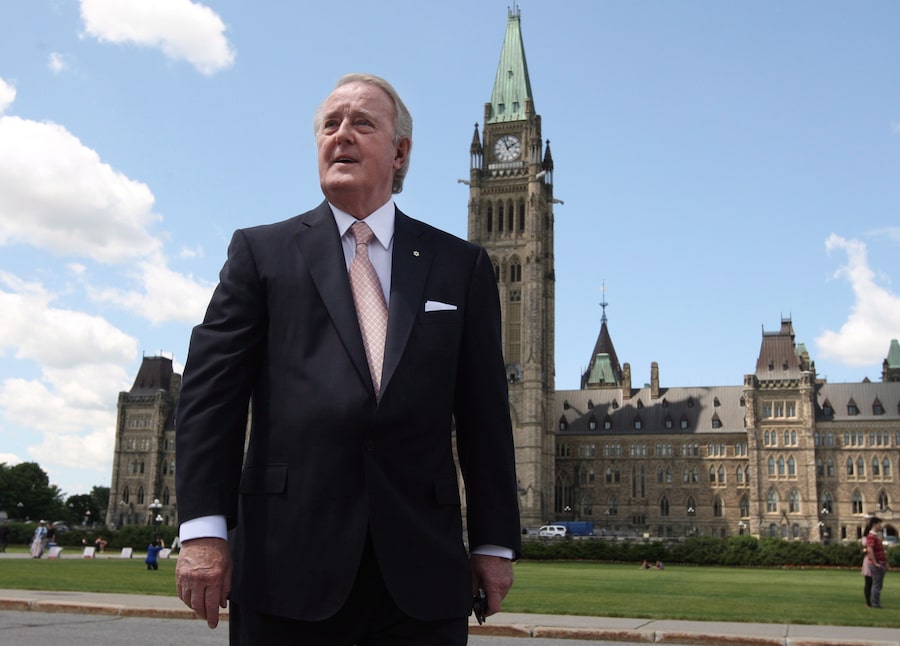
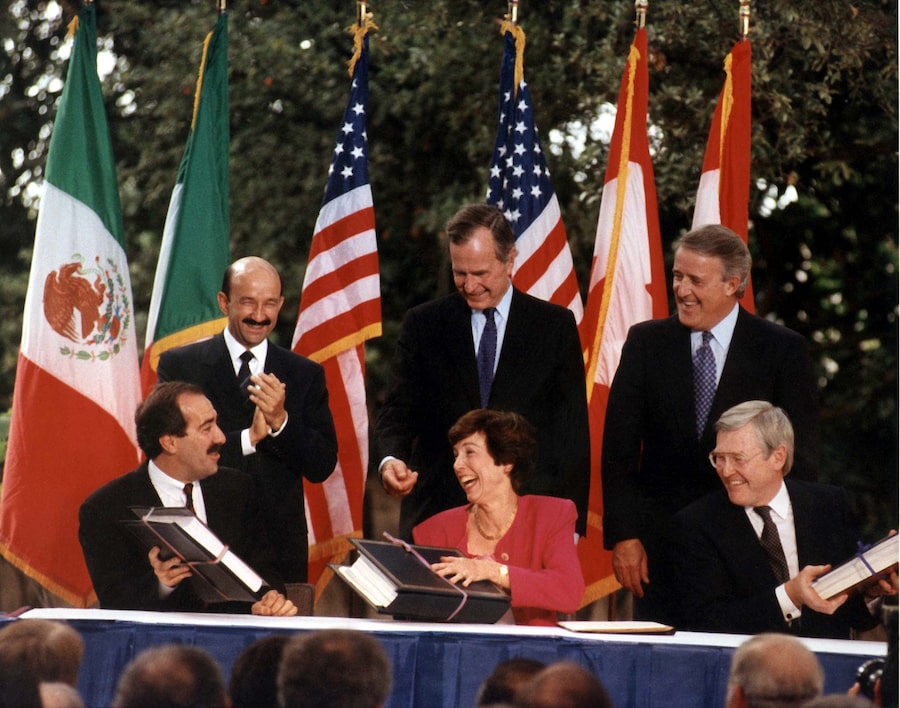
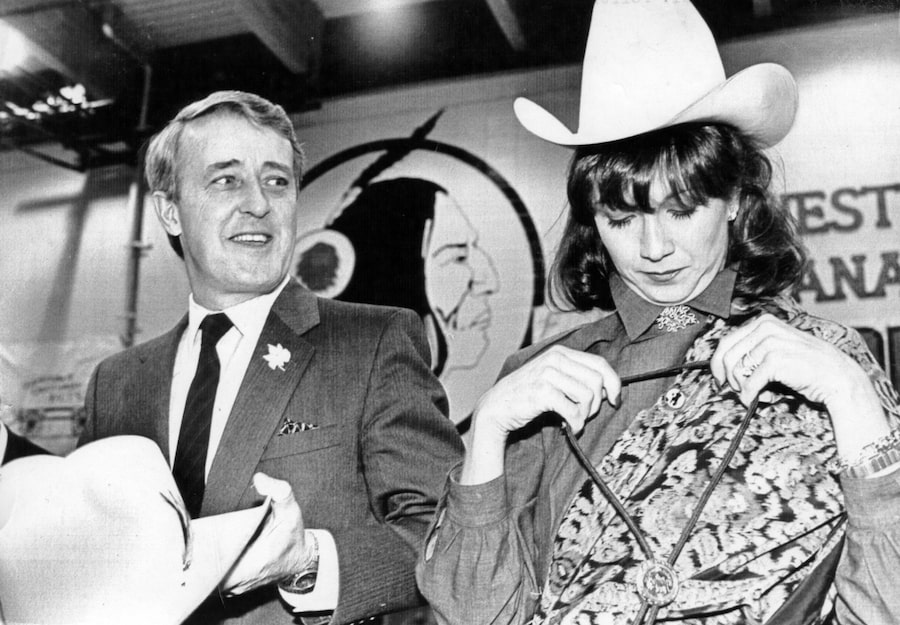
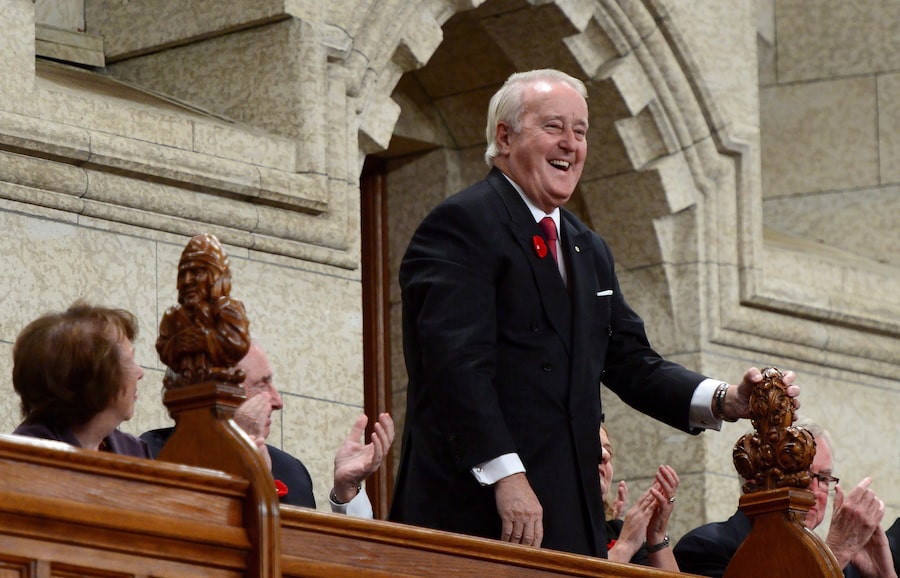
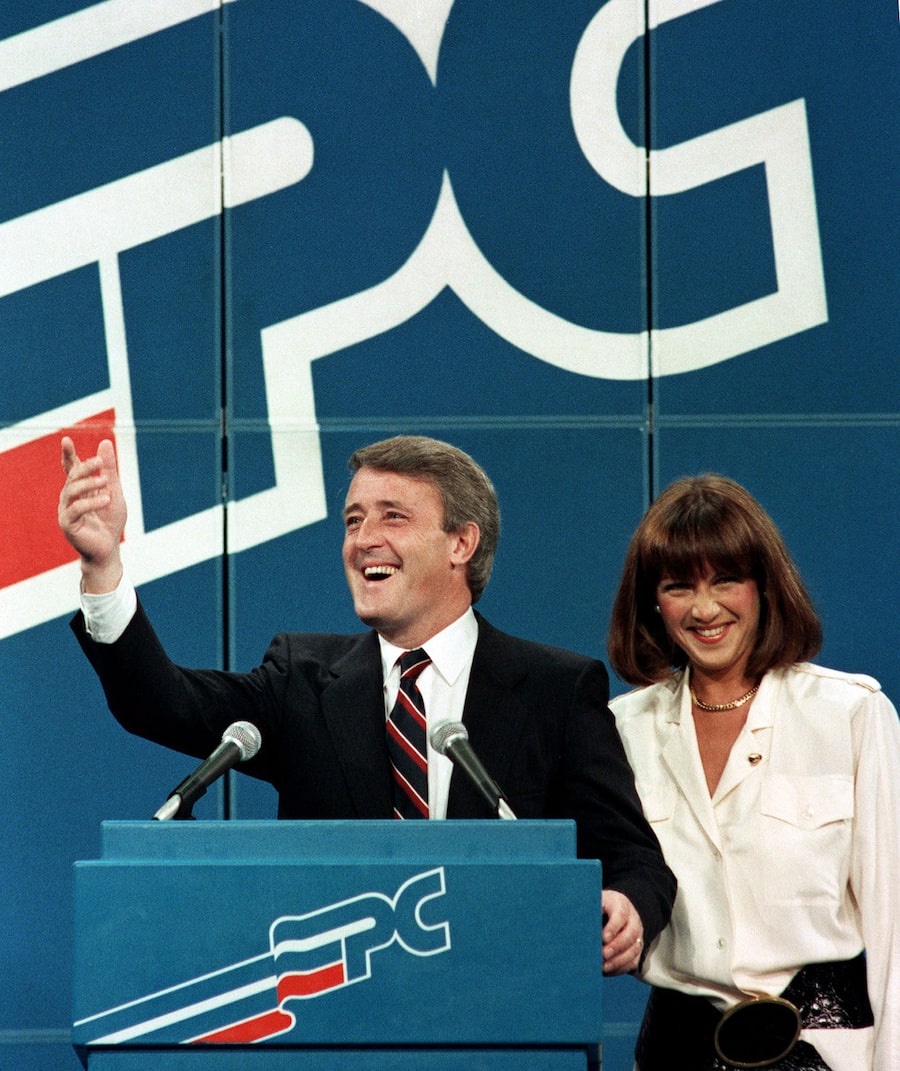
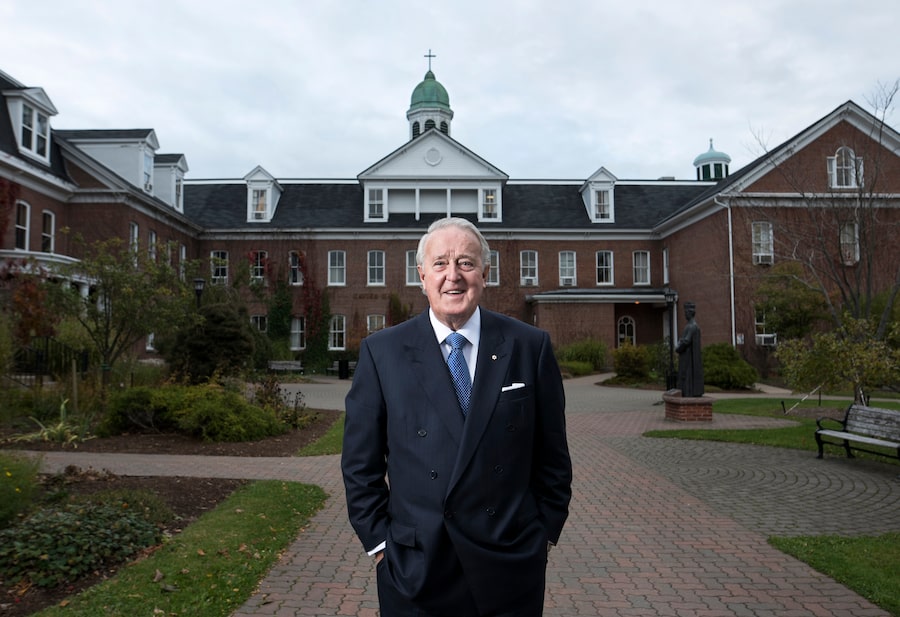
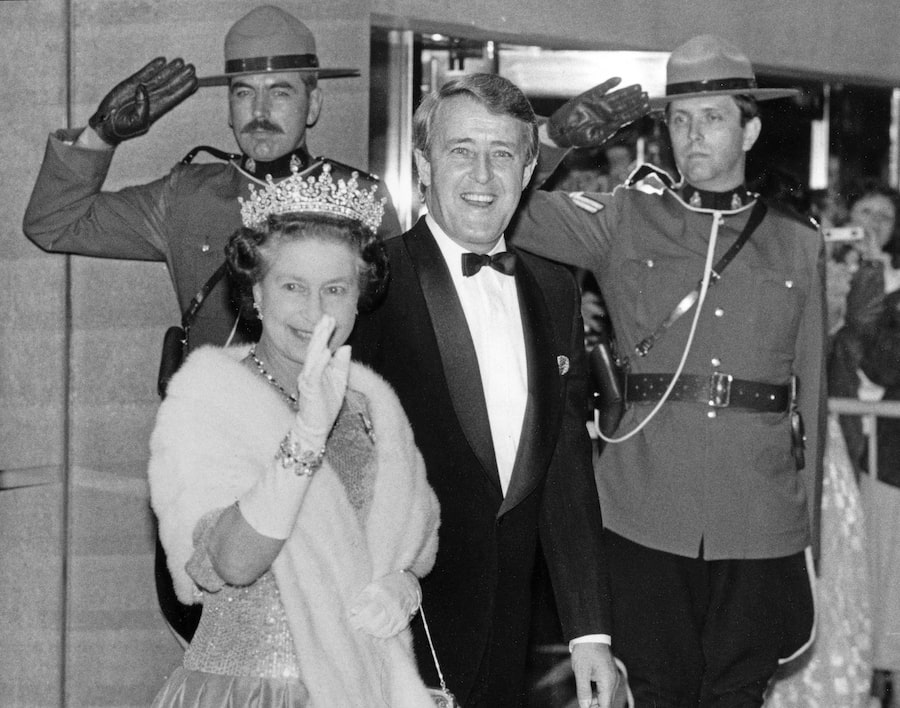
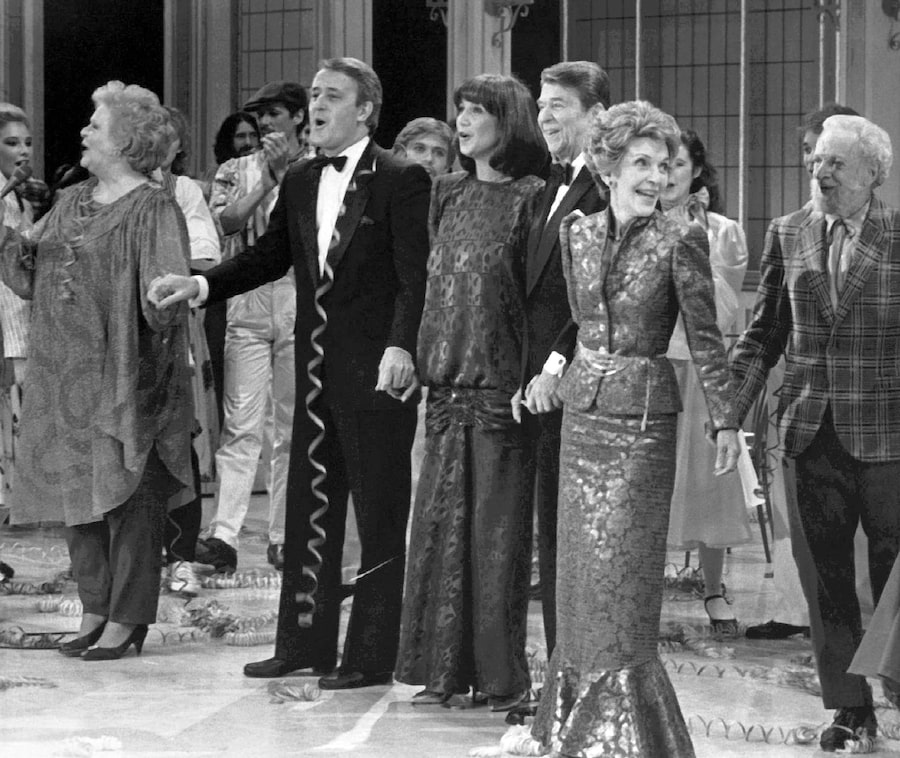
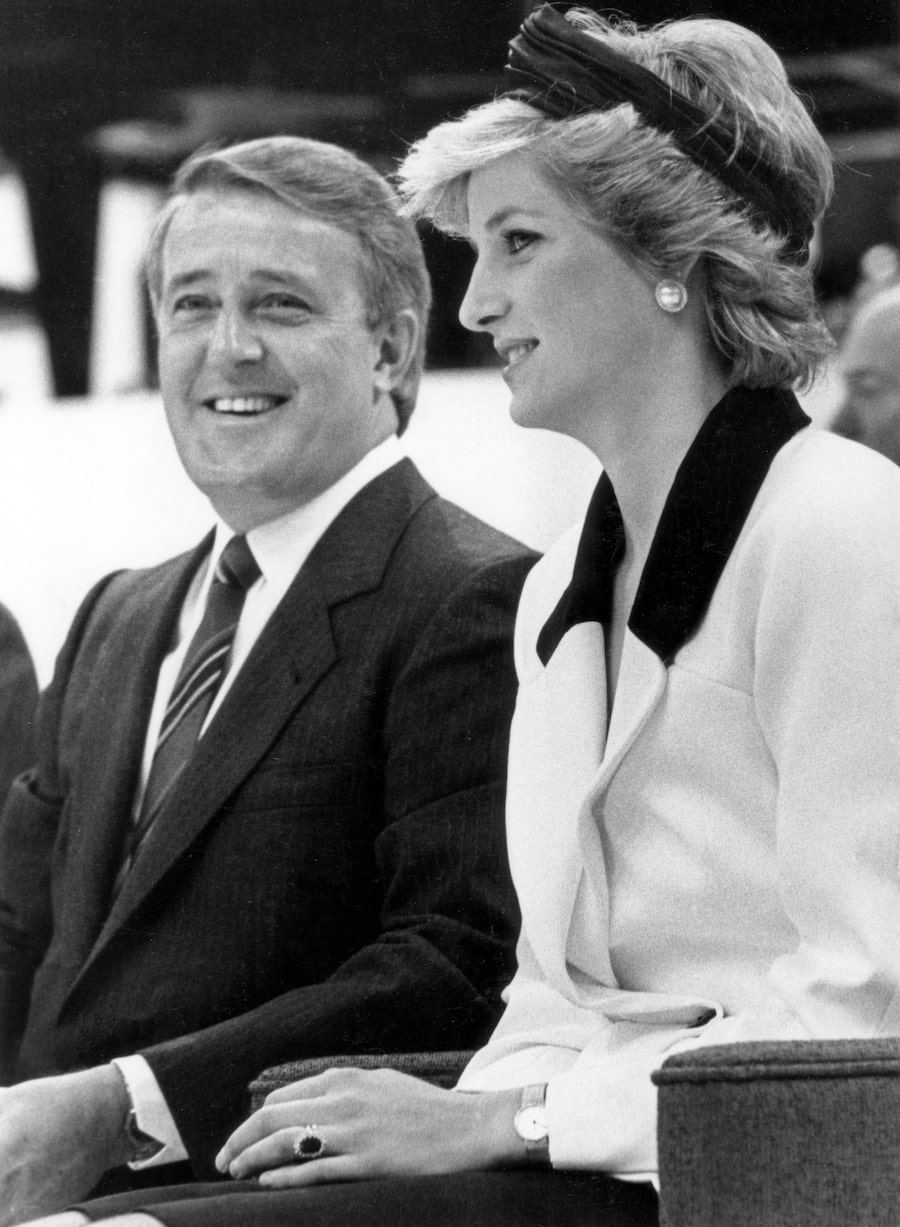

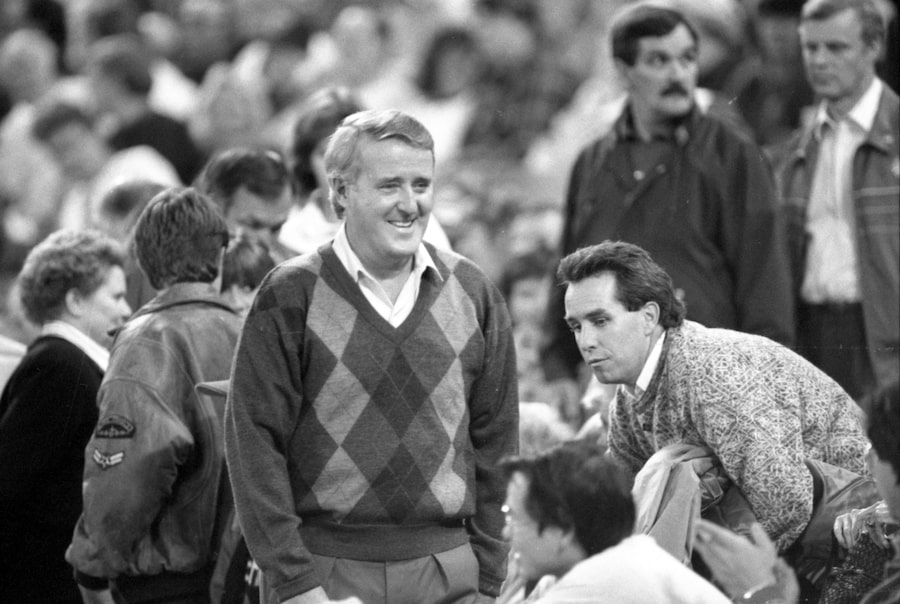

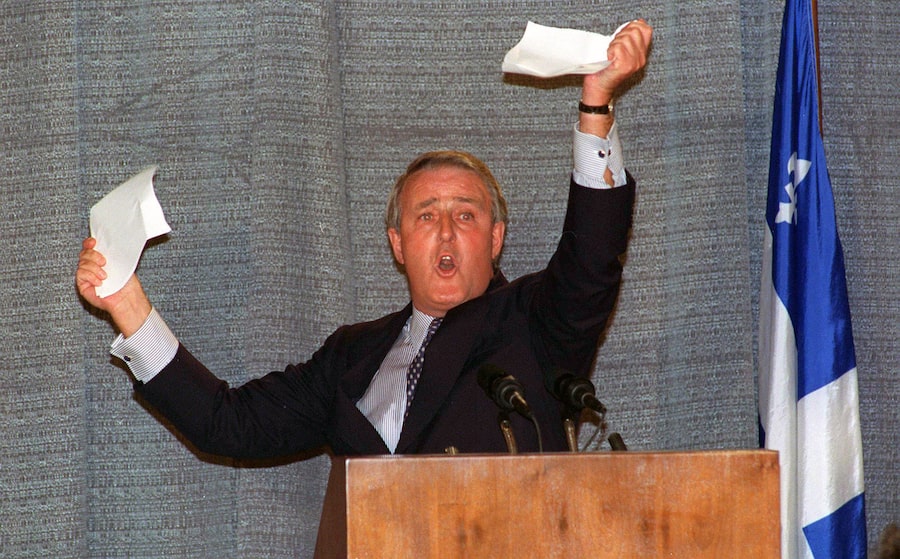
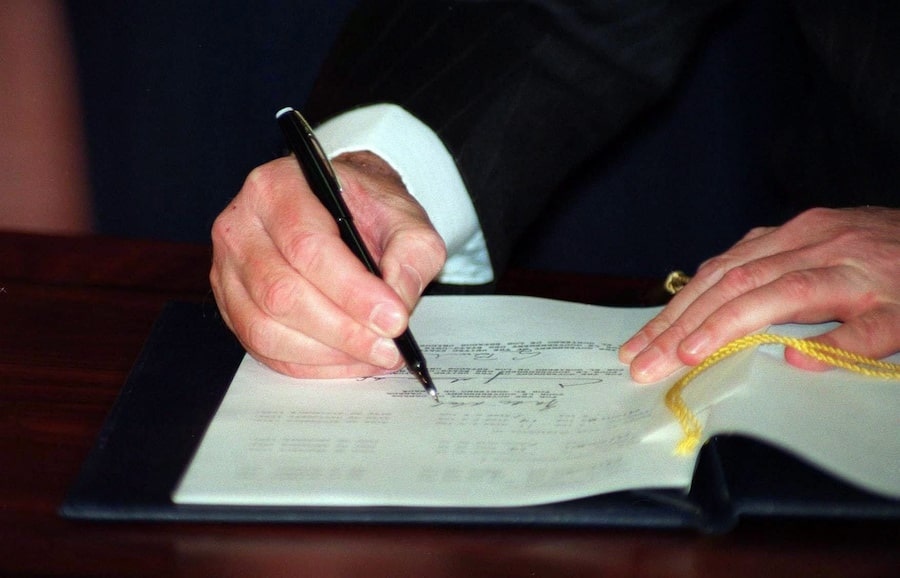


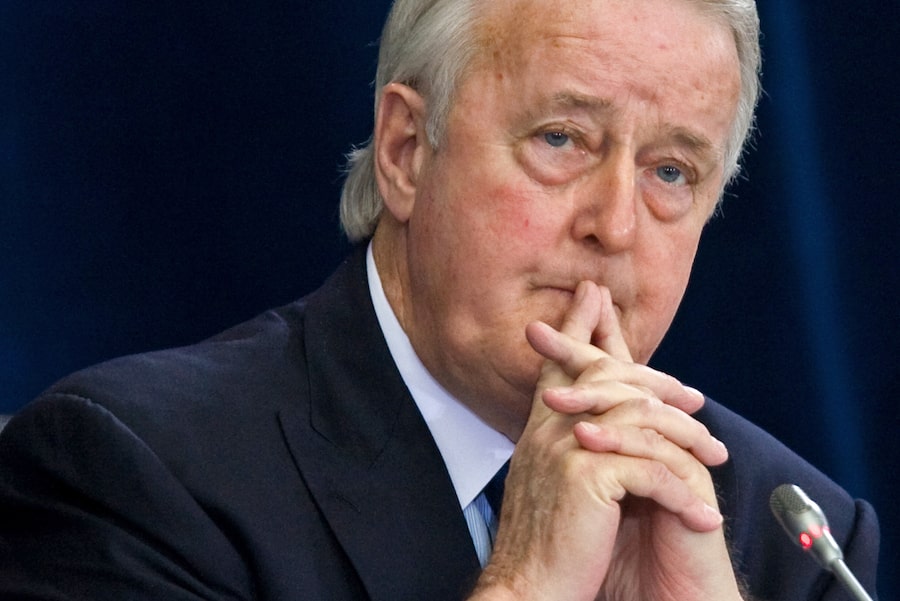

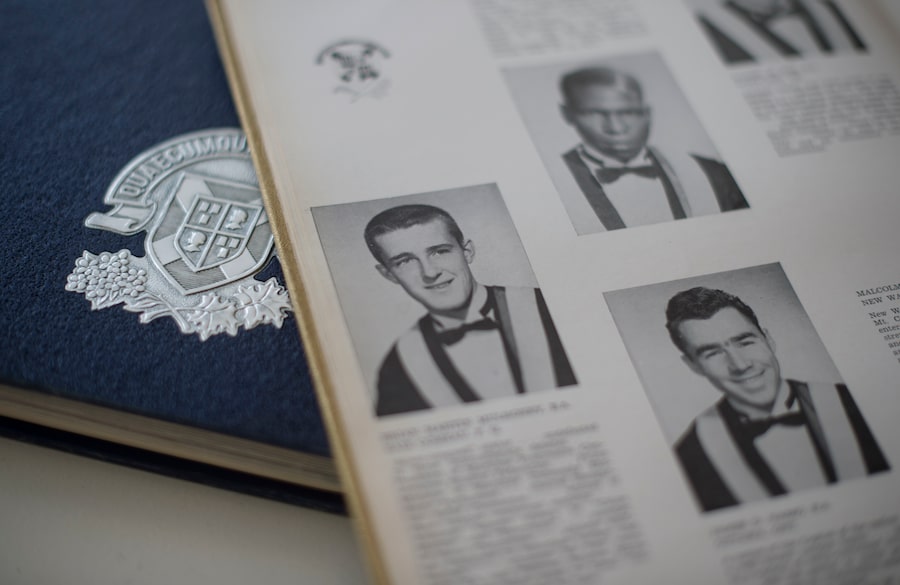
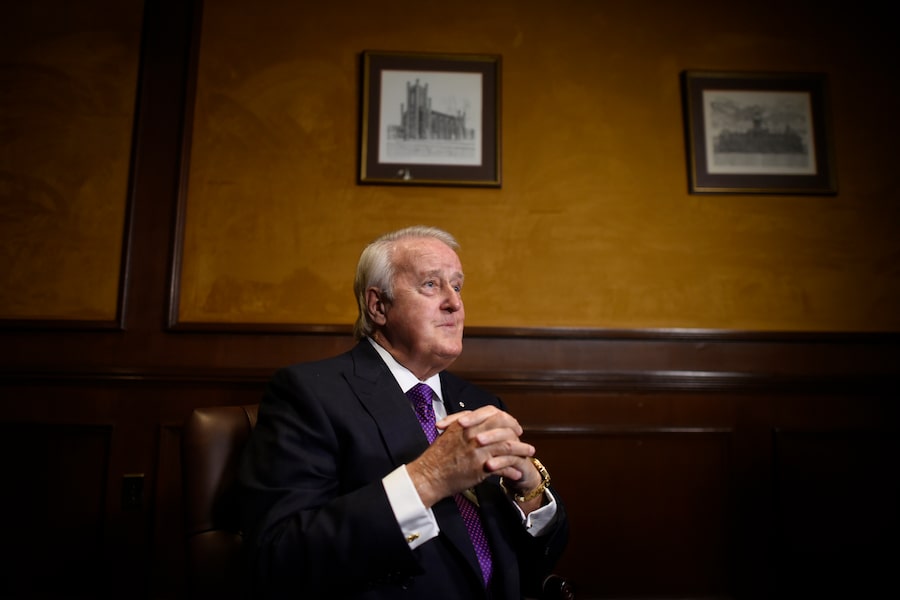
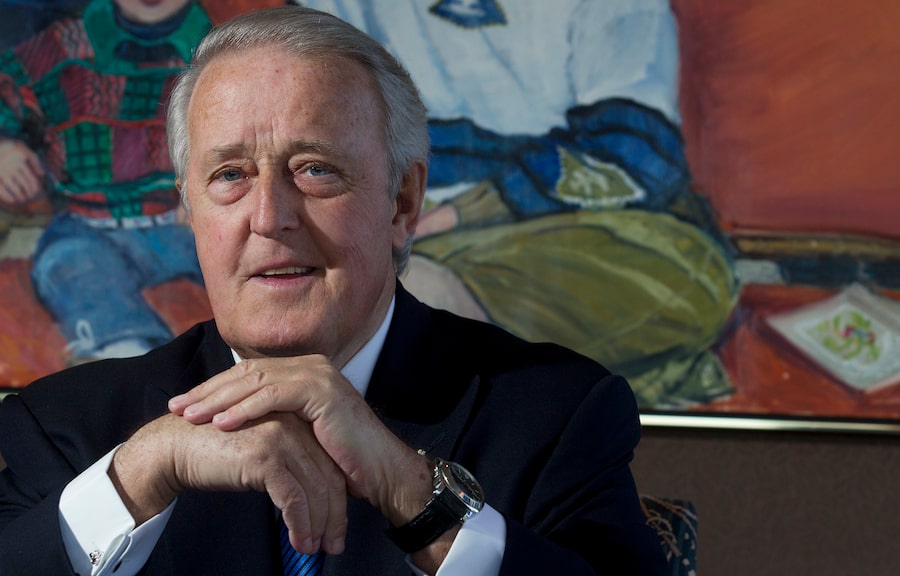
 Justine Hunter
Justine Hunter Marieke Walsh
Marieke Walsh Kristy Kirkup
Kristy Kirkup